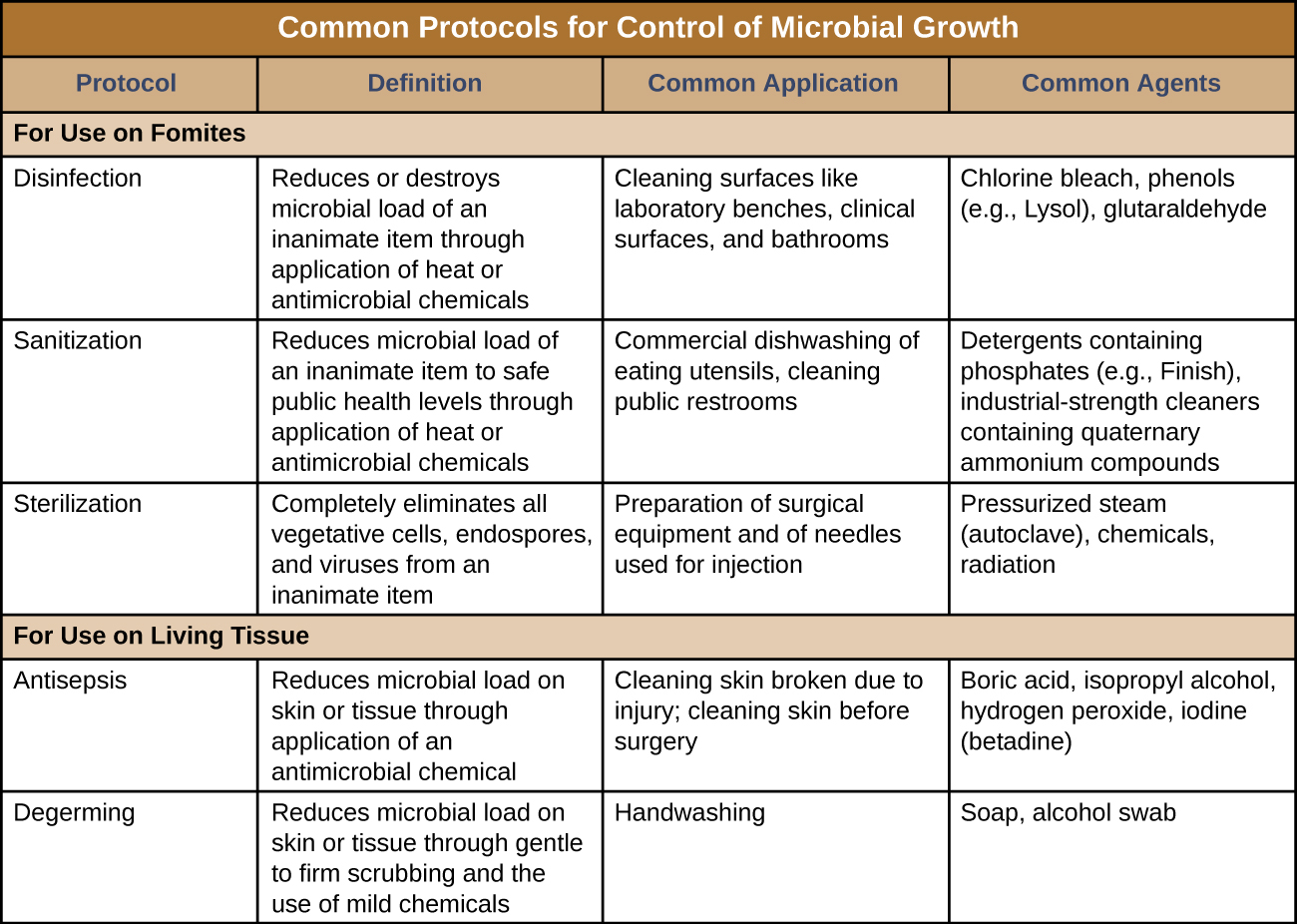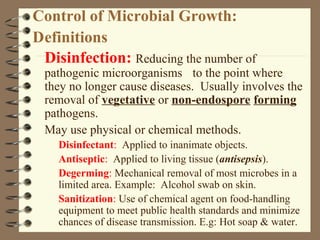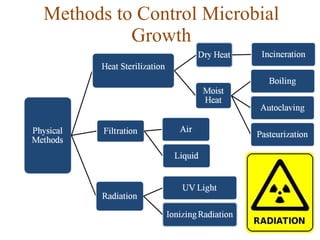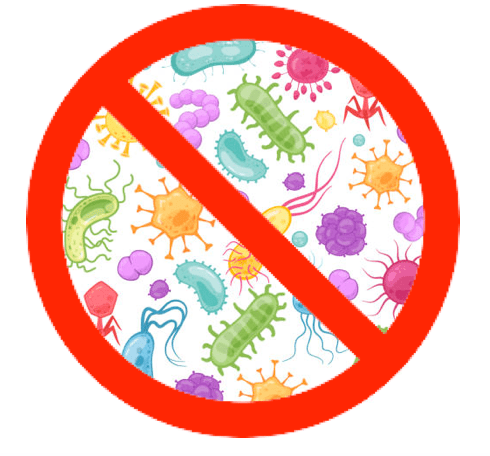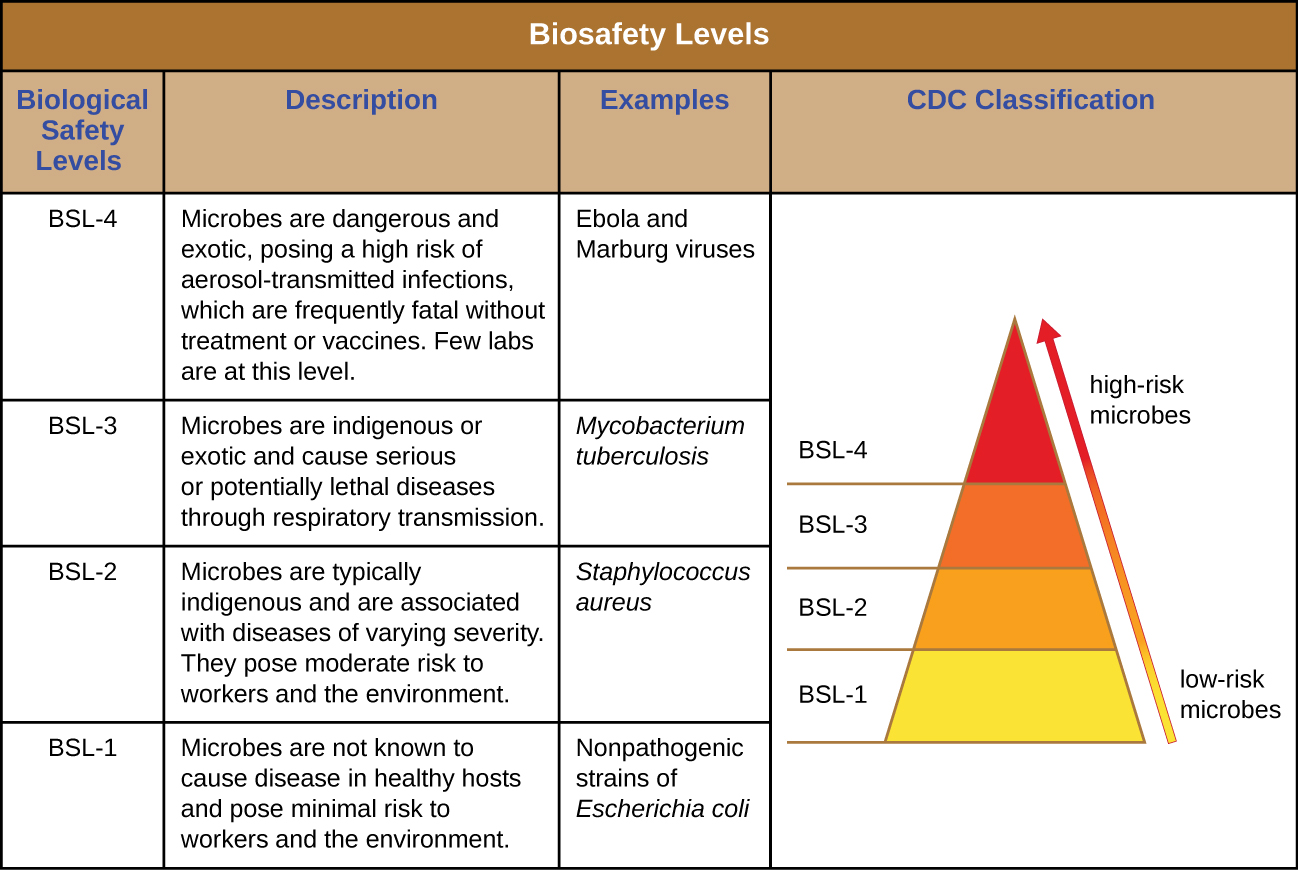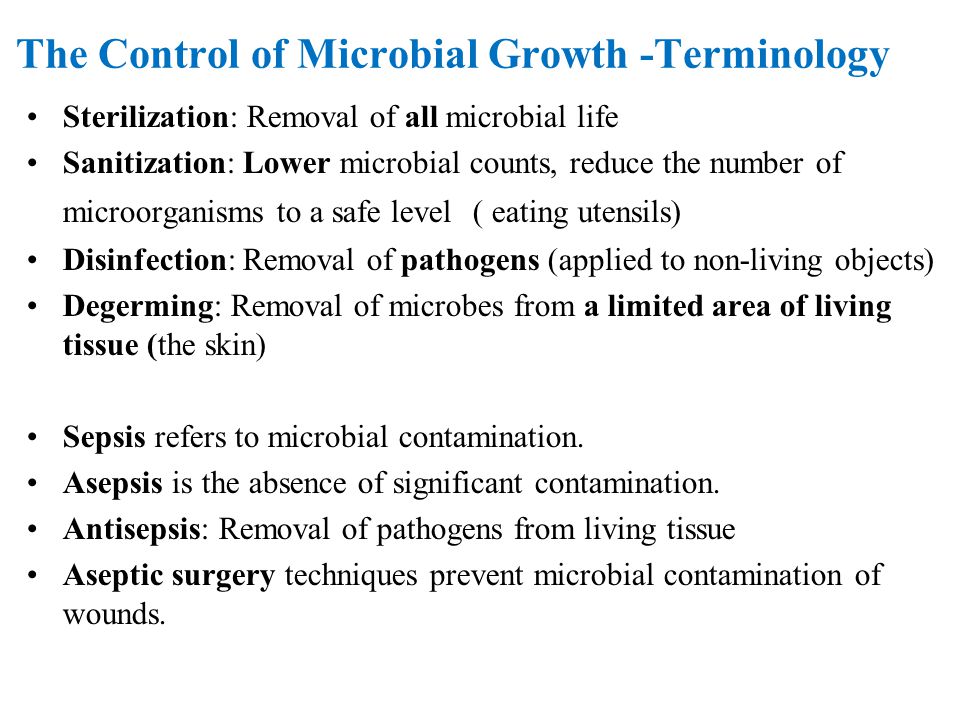Can’t-Miss Takeaways Of Info About How To Control Microbial Growth
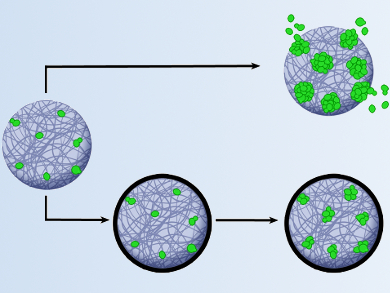
Control of growth usually involves the use of physical or chemical.
How to control microbial growth. Heating is the most commonly used. Temperature needs to be considered for bacterial growth. Recognizing how temperature impacts growth, supports the importance of refrigeration.
Killing or removing all forms of microbial life(including endospores) in a material or an object. The best solution to microbial growth is prevention. Sterilization is the destruction of all forms of microbial life, with particular attention.
Controlling microbial growth is important in many fields but the degree of. Control of microbial growth considerations in microbial control. This control is affected in two basic ways:
How to control microbial growth. Biological microbial controls use other living organisms to control the growth of organisms. Physical methods of microbial control a) heat (used for media, food, glass wares) two types (moist and dry heat) heat is very effective (fast and cheap).
Bacteria like temperatures between 40 and 140 degrees fahrenheit, and this is known as the temperature. The closest example is when you ferment cheese by infusing microbial cultures. Physical methods to control growth 1) temperature 2) filtration 3) dessication 4) osmotic pressure • physical removal of microorganisms 5) radiation • removal of water • high.
The act of handwashing is an example of degerming, in which microbial numbers are significantly reduced by gently scrubbing living tissue, most commonly skin, with a mild chemical (e.g.,. Installing reme halo uv lights can help by breaking up and drying out mildew, ultimately sterilizing the problem spots. The control of microbial growth may involve sterilization, disinfection, antisepsis, sanitization, or degerming.

